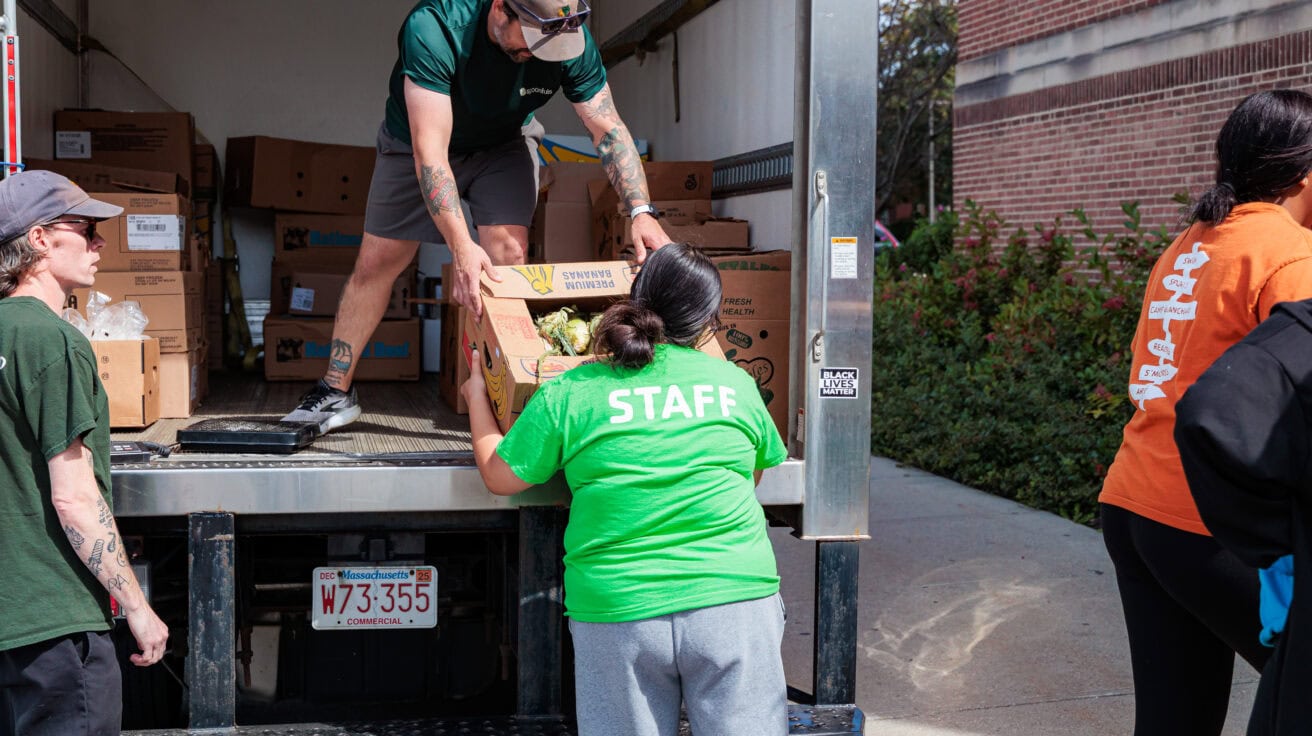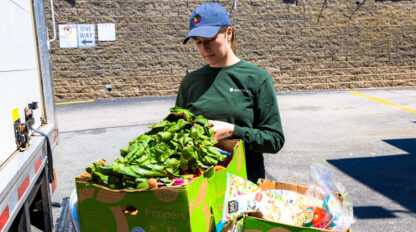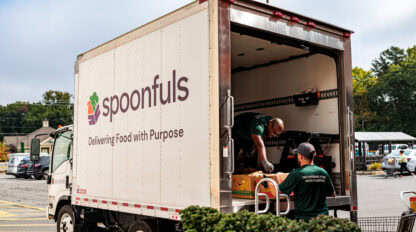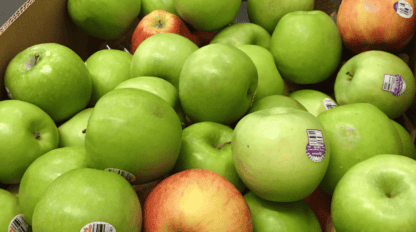Doing the work – and telling the truth about why we have to: A letter from Spoonfuls’ Founder & CEO, Ashley Stanley

The devastating headlines out of Washington over the weekend were just that. As I was digesting them, the floods of emails, texts, and DMs were coming in from our partners, my peers in the space, funders, and friends. Both shockingly and not, the news hit just two months after the passage of the “big” bill, which is impacting (and will continue to impact) our environment and social safety net. Put another way, it’s humans who will take the most direct hit.
Throughout my career in the food security space, there have always been those who have said, “Don’t get political.” But it’s impossible to do when the “political” impacts your work, your community, your neighbors. And so I speak out: A lack of data about food insecurity is only masking something that’s still a problem. The administration’s decision to terminate the Household Food Security Report was exactly the wrong one.
One of my mentors, Robert Egger, has always spoken out. He helped me early on by showing me the “why” with his example. He has always said, “Giving is not about the redemption of the giver, but the liberation of the receiver.” When I heard him say this, it was a language I hadn’t yet found – but it spoke directly and deeply to why and how I found myself in a completely new company, a new space and, to me, a new idea. I wasn’t looking to solve hunger, or to turn back the clock on climate change…but I was trying to repair. To heal. Trying to make something a little better. So when it comes to decision making, evaluating the impact of legislation, the success of policies and programs, I reflect on much the same: Is this thing helping or hurting? And as my family and I celebrate the New Year this week, the idea of tikkun olam (repairing the world) continues to guide me even in uncertain times.
Another thing early on that Robert said to me was that it was okay to tell the truth about the space in which we work – that the need for services like ours exists because of a lack of political will to provide and sustain equitable support for all. This made so much sense to me, particularly as I didn’t have the benefit (or disadvantage) of career experience in the nonprofit sector to root me in “this is the way it’s always been.”
Nonprofits make up the third largest job sector in the country, employing almost 12% of our total workforce. (There is work to be done, and, oh, so much of it) But the business I started is in food recovery, not tax structure, or social service reform.
Perla Ni wrote a terrific article for the Stanford Social Innovation Review during Obama’s first presidential campaign. In it, she says, “Nonprofits, who are battling these issues on the front lines every day, are witness to which policies have failed and which policies have worked.” I’ve found this to be true and, frankly, often the reason nonprofits exist.
From my perspective, in 2025, we are at a very real intersection between politics and humanity. The intersection of desperation and relief. Cuts to the EPA and climate action prevent meaningful solutions to the climate emergency all of us are experiencing and will continue to face. Cuts to safety net programs and policy and practice shifts out of the USDA, CDC, and FDA eliminate critical information and cohesion across industries with profound impacts on our food system and everyone who eats. The latest: The elimination of the Household Food Security Report masks the direct impact of the “big” bill on real people.
Without data, there can be no change, no responsibility, and no solution. When I began this work, I was trying to understand the true meaning of food access. This naturally led me to the barriers to it — what good is help if someone can’t find it or make sense of it? Real information that supports access is the key to understanding inequality and the struggles and challenges faced by so many. We have heard it said in many ways, across generations, and from representatives of both major political parties, “When we know better, we must do better.” It starts with information, even just the availability of information. Silencing the voices that provide it puts us on a path that I truly do not believe we want, no matter what we hear in the momentum and heat of partisanship. This is not the way.
So, at Spoonfuls, we keep doing the work – and telling the truth about why we have to.


